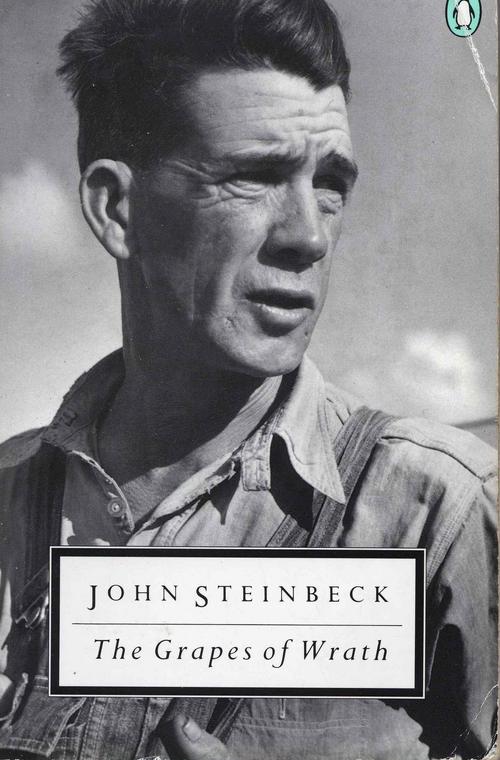Many have noted a moment of supreme irony that occurred in the capital last week. On the very day that a statue of Rosa Parks was being unveiled in the Capitol building, Supreme Court Justice Antonin Scalia was complaining that the Voting Rights Act had turned voting into a “racial entitlement.” Yes, that’s right: a member of the Supreme Court looked at the legislation that finally allowed blacks and other minorities to vote after decades of blatant disenfranchisement, legislation that continues to protect their rights today, and he calls it a racial entitlement.
I suspect Scalia would talk differently if such efforts were being directed against Italian Americans. The Grapes of Wrath reminds us that attempts to inhibit voting in this country haven’t only targeted people of color.
I’m thinking of the scene where the Joad family stops to camp in a “Hooverville” that has sprung up by the side of the road. They are informed that, even though the land doesn’t belong to anyone, sooner or later the cops will come in to move them along and burn down the encampment. The danger of the people voting is one of the reasons:
“But you jus’ camp on one place a little while, an’ you see how quick a deputy sheriff shoves you along.”
“But what the hell for?”
“I tell ya I don’t know. Some says they don’ want us to vote; keep us movin’ so we can’t vote. An’ some says so we can’t get on relief. An’ some says if we set in one place we’d get organized. I don’ know why. I only know we get rode all the time. You wait, you’ll see.”
In a democracy, voting means power and the haves will always fear the votes of the have-nots. In his novel, Steinbeck shows us how California landowners during the Great Depression used the police, the justice system, vigilantes, and sometimes even the military to keep Oklahoma migrants from exercising their rights. Today we are seeing a surprising number of GOP voter suppression efforts, which may well get a boost from an activist Supreme Court. (Here are the Huffington Post‘s top ten instances of such efforts in the past election.)
Although the Voting Rights Act was overwhelmingly approved when it last came up before Congress, the rightwing members of the Supreme Court sounded overtly hostile to the VRA in last week’s hearings. This is the way it has always been in the United States. When minority voters threaten traditional power arrangements, the establishment, the courts, and others figure out ways to circumvent the 19th Amendment of the Constitution.
It so happens that African Americans put one of their own in the White House in 2008, which means that they have the Justice Department on their side. But the Supreme Court could prevent the Justice Department from intervening if it finds the VRA unconstitutional. Ending the VRA would also give free rein to Republican legislatures and governors who want to require picture ids to vote, even though this would disenfranchise hundreds of thousands. Why do we need such id cards when no one has been able to prove that we have a meaningful voter fraud problem? Well, just because.
Anger over disenfranchisement efforts led people to stand in voting lines up to eight hours this past election. “And the anger began to ferment,” Steinbeck writes.
Further thought
I’m currently teaching Catch 22 and came across the following passage, which I’ve posted on before but had forgotten about:
Then there was the educated Texan from Texas who looked like someone in Technicolor and felt, patriotically, that people of means—decent folk—should be given more votes than drifters, whores, criminals, degenerates, atheists and indecent folk—people without means.
There are more of these Texans around than we once thought, not all of them in the south. I suppose they consider their stance a patriotic preserving of the republic. In 1955, Texas was able to patriotically prevent many, many Blacks and Hispanics from voting.


